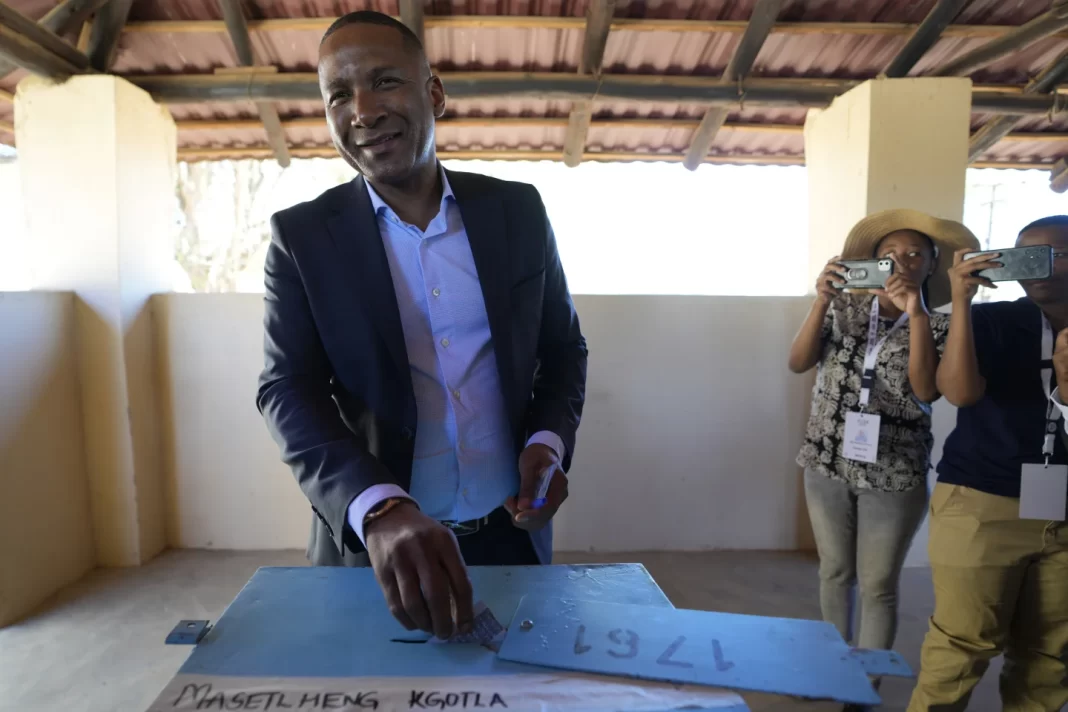By Amy Musgrave
President Cyril Ramaphosa and South African political parties have congratulated Botswana’s President-Elect Duma Boko and the Umbrella for Democratic Change (UDC) on their landslide victory in the country’s elections.
The UDC defeated the Botswana Democratic Party (BDP), which has been in power for 58 years since the country gained independence from Britain.
The BDP is the second party that has ruled for decades to lose its majority at the polls in southern Africa this year. The African National Congress lost its majority in the May general elections after ruling for 30 years.
Ramaphosa welcomed outgoing President Mokgweetsi Masisi’s stated preparations for a transition in government.
“The success of the election in our sister nation is an important and affirming demonstration of democratic maturity in our region and on our continent,” he said in a statement.
“As South Africa, we look forward to deepening our fraternal relations and cooperation with the Republic of Botswana, with outcomes that will benefit both our nations.”
The ANC said it was inspired by the democratic commitment of Botswana’s citizens, whose peaceful participation and acceptance of the results had reinforced the integrity of democratic values across the continent.
“This significant victory reflects the people’s support for a more just, equal and prosperous Botswana, and we commend the UDC’s efforts to unite diverse political voices in pursuit of transformation of their nation,” ANC spokesperson Mahlengi Bhengu-Motsiri said in a statement.
“The ANC also extends respect to the Botswana Democratic Party for their gracious acceptance of the election outcomes. Their commitment to upholding Botswana’s democratic principles and respecting the will of the people is a testament to the strength and maturity of Botswana’s democracy.”
She said the ANC was ready to support and collaborate with the newly elected leadership in advancing the transformation goals shared by the two parties.
The Economic Freedom Front also congratulated the UDC, saying on X that “this seismic shift attests to the reality that no liberation movement is ordained to wield power forever”.
The Democratic Alliance expressed similar sentiments to the EFF.
DA leader John Steenhuisen said the development signalled a wave of change in the southern African region, where once dominant political parties of independence and liberation, were gradually being replaced by parties campaigning on a promise of delivery and a better future.
“The days of the African political fraternity are finally giving way for the days of healthy African democracy and the will of the people,” he said in a statement.
The DA also welcomed the peaceful transfer of power from the BDP to the UDC, and commended Masisi for his “statesmanship and magnanimity in his defeat”.
“At the core of stable democracy lies a sense of public trust in political office bearers, and we welcome the adherence to this principle by all parties in Botswana.
“We further congratulate the Republic of Botswana on a peaceful and successful election, and wish His Excellency, Mr [Duma] Gideon [sic] Boko well in his new role under Botswana’s new government,” Steenhuisen said.
Last month, Mozambique went to the polls. There have been several protests following the country’s electoral commission announcing that the ruling party, Frelimo, won the elections, extending its 49 years in power.
Election observers, opposition parties and civil society groups allege the polls were rigged.
The next southern African country to hold an election is Namibia on 27 November.
The South West Africa People’s Organisation has been in power since Namibia gained independence from South Africa in 1990. It has gradually seen a decrease in voter support over the years.
INSIDE POLITICS

